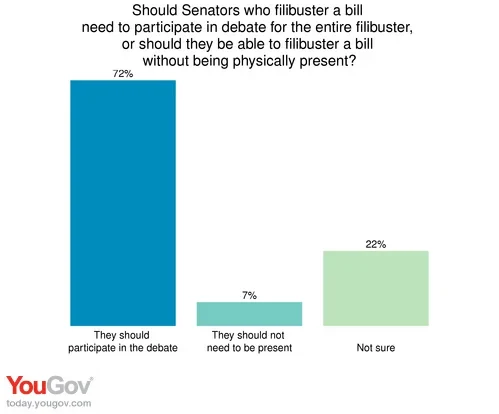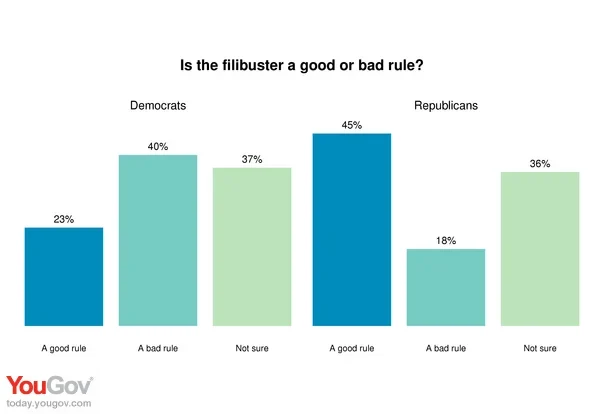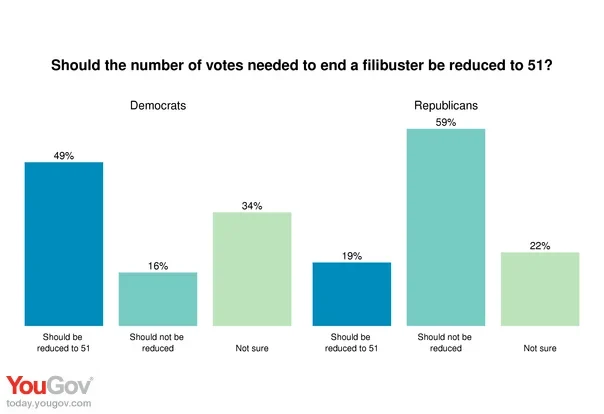(Week of 5/25/2013) Sen. Rand Paul spent nearly 13 hours in March speaking out on the Senate floor against the nomination of the CIA director, by arguing against the use of drone strikes against U.S. citizens. But most of the time, filibusters aren’t actually “talking” filibusters. And just the threat of a filibuster may be as powerful as a real one in halting progress on a bill. The latest Economist/YouGov Poll finds most Americans in favor of Paul’s actions - and not the more common ones. Non-talking filibusters are most frequently used by the minority party - Democrats and Republicans alike - so it may be no surprise that 71% of Democrats and 80% of Republicans want a filibuster to include real debate. But assessment of the rule itself depends on where one stands politically right now.

The public divides evenly on whether the filibuster rule is good or bad (with nearly four in ten undecided), but By 40% to 23%, Democrats say it’s bad, while by 45% to 18% Republicans think it’s a good rule. And when asked if the Senate should change the rule to end filibusters by reducing the number of votes needed from 60 to 51 - once again, Americans give a response representing the current partisan composition of the Senate: by 49% to 16%, Democrats would reduce the number of votes needed to end a filibuster to 51; By 59% to 19%, Republicans would keep it at 60.


Economist/YouGov poll archives can be found here
Photo source: Press Association







